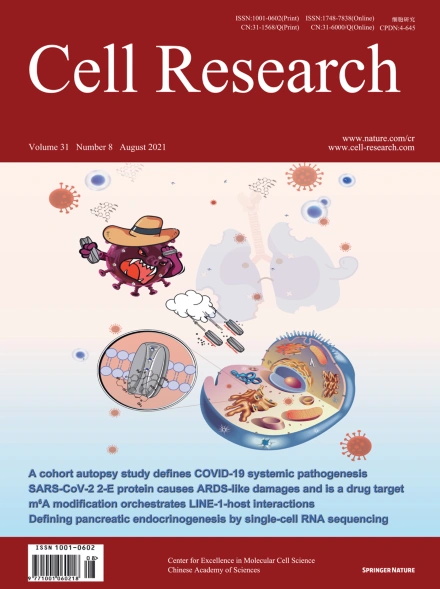
Advanced Search
Submit Manuscript
Advanced Search
Submit Manuscript
Volume 31, No 8, Aug 2021
ISSN: 1001-0602
EISSN: 1748-7838 2018
impact factor 17.848*
(Clarivate Analytics, 2019)
Volume 31 Issue 8, August 2021: 834-835
Pancreatic endocrinogenesis revisited: “I have all the answers, who has the questions?”
Willem Staels1,* , Raphael Scharfmann2,*
1The Beta Cell Neogenesis (BENE) Research Group, Vrije Universiteit Brussel (VUB) and the Service of Pediatric Endocrinology, Department of Pediatrics, KidZ Health Castle, Universitair Ziekenhuis Brussel (UZ Brussel), 1090 Brussels, BelgiumThe endocrine pancreas is composed of islets of Langerhans that are scattered throughout the gland and contain multiple hormone-producing cell types (α, β, δ, PP and ε cells); endocrine progenitors (EPs) can differentiate into these distinct lineages, but the regulation of their fate choice — especially for the low-abundance δ, PP and ε cells — remains incompletely understood. In a paper published in Cell Research , Yu et al. provide a notable resource to decipher the differentiation pathways of murine and human EPs.
https://doi.org/10.1038/s41422-021-00489-7